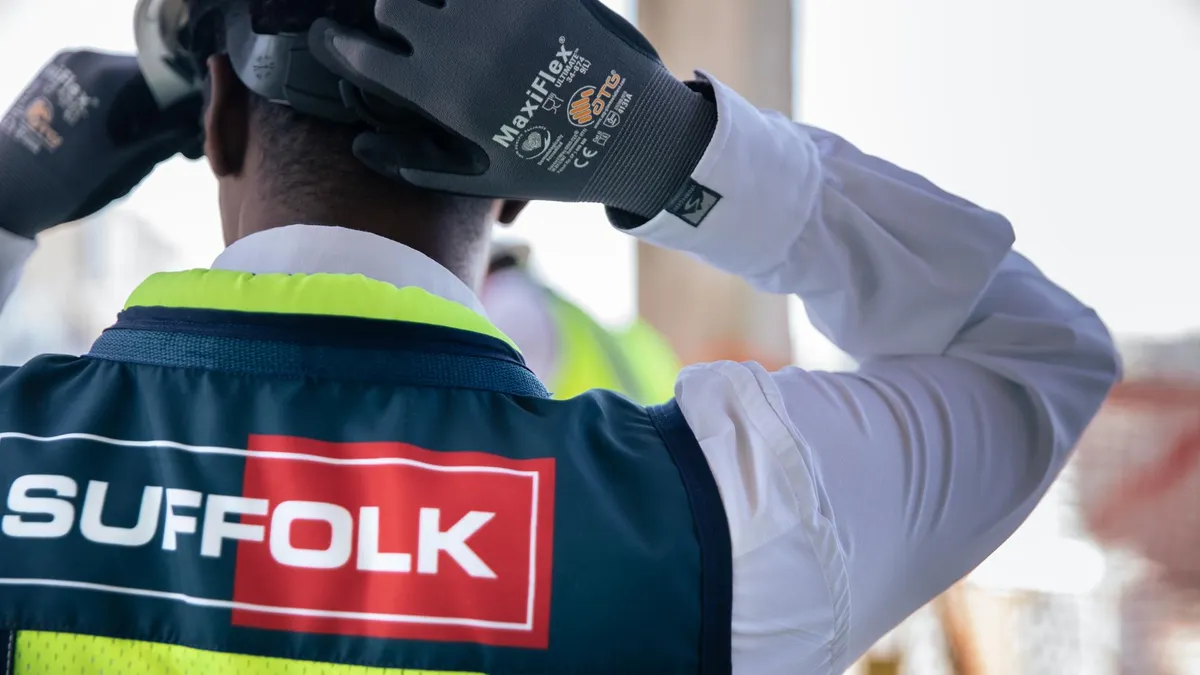Dive Brief:
- Boston-based general contractor Suffolk Construction and military veteran mental health nonprofit Home Base penned an open letter to OSHA last week, calling attention to the construction industry’s mental health issues and advocating for suicide awareness and prevention training in basic OSHA certifications.
- The letter coincided with both Construction Safety Week and Mental Health Awareness Month, which John Fish, chair and CEO of Suffolk, said made the timing “ripe.”
- Construction has the second highest rate of suicide among all U.S. industries at 45.3 per 100,000 workers, per the Centers for Disease Control and Prevention. Suffolk partnered with Boston-base Home Base, as military veterans too face a mental health epidemic, being 15% more likely to attempt suicide than civilians.
Dive Insight:
“Our collective goal as an industry should be for every worker to return home safely to their families each day,” the letter reads. “It is our job as industry leaders to train, support and educate our workers on the symptoms of mental illness and identifying suicide risk factors, which should be taken as seriously as any jobsite risk. The time is now to rally our entire industry to address this dire issue.”
OSHA has highlighted the fatalities in the construction industry from drug overdose and suicide, but those are both hazards outside of the agency’s purview for providing a safe workplace.
“We believe mental health and suicide should be part of every conversation about jobsite safety. We understand OSHA is aware of the challenges of mental health issues in the construction industry and takes them seriously,” Fish told Construction Dive. “The purpose of our letter was to continue drawing much-needed attention to this issue.”
By training more workers to recognize signs or symptoms of mental distress in OSHA 10 and OSHA 30 certifications, Fish said more lives can be saved.
“The reality is improving mental health through training and certification can impact company performance and productivity, but it can also save lives,” Fish said. “In the end, addressing this important issue is the right thing to do.”
About 13% of military veterans join the construction industry in some fashion after they serve, according to retired Brig. Gen. Jack Hammond, executive director of Home Base. Many of them are coming home from multiple deployments with “invisible wounds,” such as PTSD, depression or anxiety, on top of injuries sustained from concussive events.
“Many in our communities think that because the wars in Afghanistan and Iraq are over, the need for mental health and brain injury care for veterans and service members has diminished,” Hammond said. “Nothing could be further from the truth.”
Construction Dive contacted OSHA, but did not receive comment by the time of publication.









